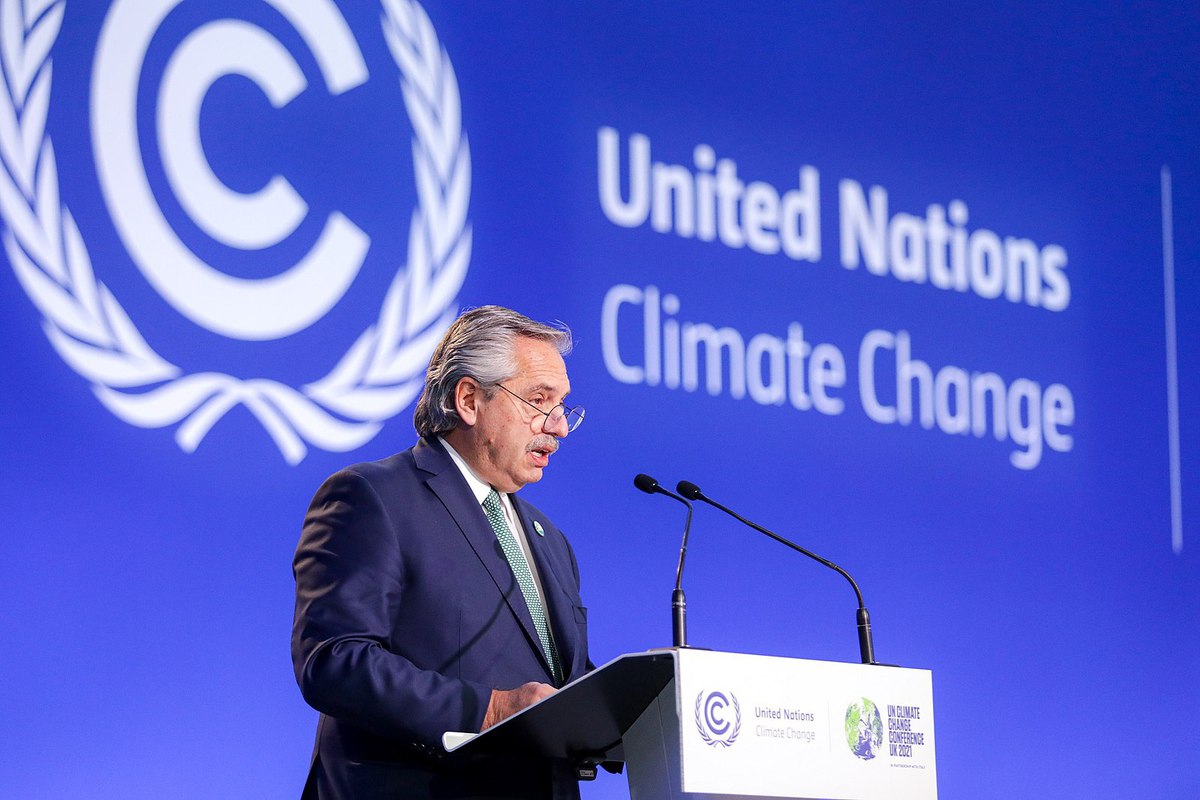Yale students and professors shape global environmental policy at COP26 conference
Student participants expressed varying levels of optimism about the conference’s ability to create change.

Wikimedia Commons
At COP26, the United Nations’ 26th Climate Change Conference, dozens of Yale students, faculty and staff are participating in discussions centered around mitigating the effects of climate change.
The U.N.’s annual climate summit, which takes place in Glasgow, Scotland, began on Oct. 31 and will run until Friday. World leaders and representatives from more than 200 countries have gathered to push forward the goals of the 2015 Paris Agreement and the U.N. Framework Convention on Climate Change. More than 20 Yale students are in attendance, supporting a variety of organizations and government delegations.
But with the multitude of climate protests taking place on the streets of Glasgow, the summit has stirred debate around how countries, individuals and organizations should take action to mitigate climate change.
“I’ve always felt kind of reserved about being hopeful at a COP,” said Jamie Lee ENV ’22, who previously attended COP24 in Katowice, Poland. “But I guess it makes me hope that there are at least 10,000 people at this COP who are really concerned about these issues or are at least passing off as being concerned about these issues.”
Lee, who was at the conference from Nov. 1-6, was assisting the Environmental Defense Fund in tracking Article 6 negotiations. Article 6 surrounds carbon markets and carbon trade regulation. According to Lee, she is not overly optimistic about the article’s prospects in moving forward. She did recognize, however, that a lot of political decisions are made “at the very last minute.” She is therefore hopeful for a resolution.
“Something that surprised me at this COP was the bigger presence of business, business coalitions and a sort of industry perspective,” Lee said.
According to Lee, at the conference, the more than 30 pavilions representing countries, organizations and businesses had no shortage of coalition and corporate presence. The top floor of the U.N. Climate Change Pavilion hosted Google, Facebook and Bloomberg Sustainability, Lee said.
As world leaders, including President Joe Biden and former President Barack Obama, gathered for the two-week-long conference, climate change protests took place on the streets of Glasgow. Greta Thunberg, at a Fridays for Future rally, deemed the conference a “failure” and criticized it for being a “greenwashing festival.”
Luca Guadagno ENV ’22 participated in a march through the city on Saturday. According to Guadagno, the conference represents “something different” compared to the “people power in the streets” that the nearby protests projected.
“It was a really powerful opportunity to get to see both periods of change,” Guadagno said.
At COP26, Guadagno worked with The Forest Dialogue, a Yale School of the Environment organization dedicated to bringing sector leaders into conversation about improving environmental impacts. He worked to organize a dialogue around climate-positive forest products. The dialogue is scheduled for Thursday, and Guadagno said he is still hopeful that tangible change will come out of the conference.
“I’m optimistic because at least for me, no good work comes from being rejected and pessimistic,” Guadagno said. “I think the people that I’m most excited to interface with at this meeting are the mid-level folks, people who are early in their career and will be working really hard and doing really good work, no matter how big or small it is. I think there are just a lot of people here who are working really hard. And I think that hard work on small scales does translate to mitigation.”
While Daviana Berkowitz-Sklar ’23 agreed that important work and commitments will come out of the conference, she critiqued the positive image surrounding the conference and expressed support for Greta Thunburg’s sentiments surrounding the performativity of some aspects of the summit.
According to Berkowitz-Sklar, more than three decades of UN conferences have not helped to move the world in the right direction in regard to climate change. She is hoping the lessons learned during the COVID-19 pandemic will “highlight how connected and fragile [the] world is.”
For Saskia Braden ’25, who is in attendance during the second week of the conference, COP26 has been effective so far.
“This is the most successful COP we have seen in half a decade,” Braden said. “They have pledged to halt deforestation by 2030 and make major methane cuts.”
Major policy changes are not the only thing attendees see as successful. Daniel C. Esty ’86, professor of environmental law and policy at the School of the Environment and Yale Law School, has attended these conferences since 1992 and is a participant in several events at COP26.
“I think these conferences are very useful in terms of mobilizing people, and educating people, and ensuring that there is an opportunity to build consensus around critical directions,” Esty said.
The conference deals with both private negotiations around business and policy, which happens in the Blue Zone, and public education and forward facing events, which happen in the Green Zone. Paul Anastas, professor in the practice of chemistry for the environment at the Yale School of Environment, is a participant in one of the Green Zone events.
Anastas had a more positive outlook when it comes to setting goals at conventions like COP26.
“Everything is aspirational until it’s achieved, right?” Anastas said. ”So, you need to set out a vision and only upon implementing that does it become realistic. So, I would say that you have a vision and say this is what needs to happen, and if there’s change that’s how you know it’s realistic.”
On Nov. 2, Biden announced new rules limiting methane emissions from oil and gas drilling.
Correction, Nov. 10: This article has been updated to indicate that Jamie Lee attended COP24 in Poland, not COP23 in Germany.







